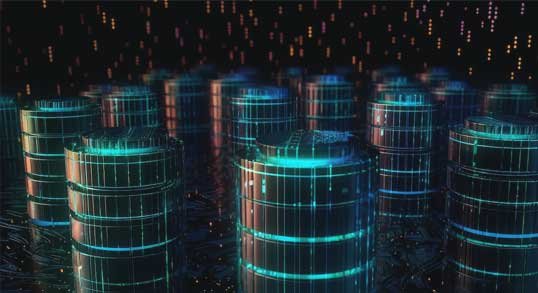Data Pipeline–Clean,Connect, and Transform with Ease
Get a single view of the entire data set
for in-depth analysis.

Make Decisions Faster with More Confidence
DextraLabs makes data simple. We take your messy, scattered data and turn it into clean, actionable insights—fast. From startups to big enterprises, we help organizations grow through smarter decisions.
We design systems that collect, clean, and store data smoothly. Also, our systems smoothly integrate into your business, saving your team time and letting them focus on what really matters.
With DextraLabs, you get data that grows with you. Our pipelines scale effortlessly, handling more data as your business expands. Clean, well-organized data leads to better decisions and better outcomes—every single time.
Let’s change the way you work with data, together.
WHAT WE DO
Challenges we solve
We eliminate the guesswork in data management by tackling the most common challenges businesses face when working with data.

Tame the Data Chaos
Overwhelmed by messy, scattered data? We simplify your data collection process, bringing everything together in one place. Say goodbye to clutter and hello to organized, streamlined insights
Eliminate Manual Work
Tired of wasting time on manual work? Collecting and organizing data by hand is not only exhausting but also invites errors. Our automated pipelines take care of the heavy lifting, saving you time, reducing mistakes, and cutting costs.

Data Pipeline Services Made Simple
Transform your raw data into actionable insights with ease.
Data Extraction
We gather data from all your sources—databases, APIs, web scraping, IoT devices, and even personal devices—quickly and accurately. No matter where your data lives, we bring it together effortlessly, creating a solid foundation for your business insights. Whether you’re working with structured or unstructured data, our processes ensure every piece is collected efficiently and fairly.
Data Transformation
We take raw data and turn it into something useful for your business. From cleaning and normalizing to aggregating and enriching, we make sure your data is ready for analysis. Our transformation process goes beyond the basics, aligning your data with your business goals. We add context to make sure the data is not only accurate but also actionable, giving you insights that drive smarter decisions.
Data Integration
We bring together data from different platforms, apps, and databases into one clear, unified view. We make sure your data flows smoothly across ERP systems, marketing tools, or cloud platforms. We handle various data formats and structures, ensuring everything works together smoothly and consistently throughout your business.
Data Validation & Quality Assurance
Trust your data with confidence. We make sure your data is always accurate and reliable. Our team checks for errors, fixes any issues, and improves data quality to give you insights you can trust. By testing and verifying the data, we ensure it’s consistent and ready for decision-making without surprises.
Solution We Provide
Explore our custom solutions
Frequently Asked Questions
A data pipeline is a system that moves data from one place to another. It automates how raw data is collected, processed, and stored. The pipeline ensures that data flows smoothly and is ready for use. It connects various sources like databases or APIs to destinations like warehouses or lakes. By using a pipeline, businesses can manage large volumes of data efficiently.
- Data Ingestion
Data is collected from sources such as databases, APIs, or devices. This step ensures data is captured consistently. - Data Transformation
The raw data is cleaned, formatted, and prepared for use. This includes removing duplicates or converting data types. - Data Storage
The processed data is stored in a central repository. This makes it easy to analyze or use for reporting.
No, they are not the same. ETL (Extract, Transform, Load) is a specific type of data pipeline. It moves data in a defined sequence: extracting, transforming, and loading. A data pipeline, however, is a broader concept. It can include ETL but also handles other processes like real-time streaming. Data pipelines support both batch and streaming workflows.
A data pipeline includes tools and processes for data movement. It has three main parts:
- Ingestion to pull data from sources.
- Processing to clean and transform the data.
- Storage to save data for future use.
The pipeline may also include monitoring tools to track performance and ensure data quality.
An e-commerce platform uses a data pipeline to track user activity. It collects data like clicks, views, and purchases from the website. The pipeline processes this raw data, cleaning it and converting it into reports. These insights help the platform recommend products or improve the shopping experience.
A data pipeline can use several languages depending on the task. For building and automation, Python is popular due to its simplicity and libraries. SQL is used for querying and managing data in warehouses. Other languages like Java or Scala are used for high-performance pipelines, especially with big data.
- Define Your Needs: Decide what data you need and where it comes from.
- Choose Your Tools: Select platforms or frameworks for ingestion, processing, and storage.
- Build the Steps: Create scripts or workflows for moving and transforming data.
Test and Monitor: Run the pipeline, check for errors, and monitor its performance.
With DextraLabs, these steps are made easy through tailored solutions.
ETL processes often use Python for scripting and automation. SQL is crucial for handling database queries and transformations. Other languages like Java or Scala are also used for more complex workflows. The choice depends on the tools and the organization’s needs.





